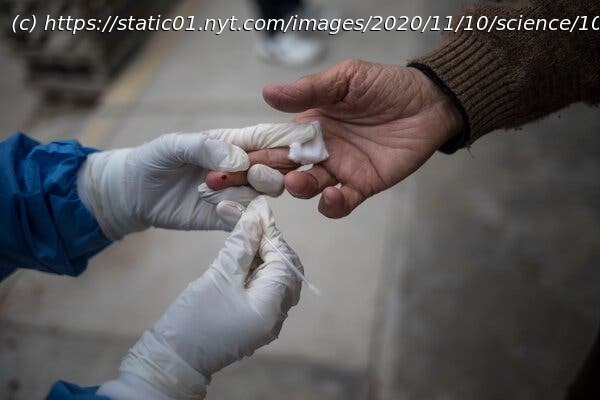The test detects the response of T cells to the virus — an arm of the immune system that may be just as important as antibodies to preventing reinfection.
A new type of test can detect a person’s immune response to the coronavirus better than a widely used antibody test, according to research released on Tuesday. The test, if authorized by the Food and Drug Administration, would be the first commercial product to detect the response of a T cell — a type of immune cell — to the virus. Antibodies have dominated the conversation on immunity since the start of the pandemic, but scientists believe that T cells may be just as important in preventing reinfection. The test was developed by Adaptive Biotechnologies, a company based in Seattle. The company used small blood samples from 1,000 people across 25 metropolitan areas in the United States as well as another 3,500 participants from Europe to create the test, which can detect a recent or past infection of the coronavirus. The company’s data has not yet been reviewed for publication in a scientific journal, but experts say the work is promising for assessing T cells’ role in the illness caused by the coronavirus. Exposure to a pathogen rouses multiple arms of the immune system: antibodies, but also immune cells that can marshal the fight against the intruder. “What we’re developing is essentially a way to look at that cellular part of immunity,” said Dr. Lance Baldo, chief medical officer of Adaptive Biotechnologies. Antibodies have so far hogged much of the attention — mostly because testing for them is quick and easy. But levels of antibodies tend to wane after the active illness is resolved and may be undetectable within a few months. Several studies have suggested that T cells that remember the virus persist for at least six months. “There’s a growing realization that T cells are important and may even be a better indicator of clinical outcome” than antibodies, said Alessandro Sette, an immunologist at the La Jolla Institute for Immunology in California. But isolating T cells is an elaborate and onerous process, severely limiting the information about their role. Each of the trillions of T cells present at birth carries a unique receptor on its surface that can spot a different molecule, or antigen, from potential invaders. This enormous diversity among T-cell receptors enables the human body to recognize virtually any new pathogen that it may encounter (although a vast majority may never meet their match.






